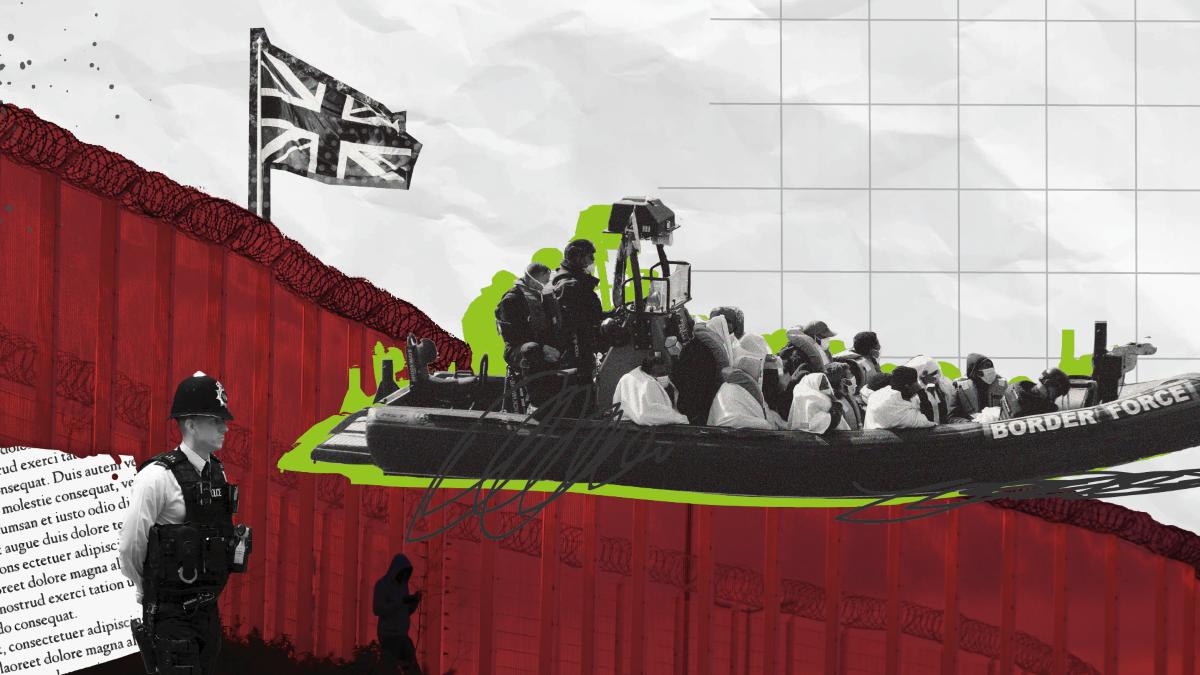Increased Surveillance Ankle Tags for Migrants in the UK
Core Concepts
The author argues that the increased use of electronic ankle tags on migrants in the UK is dehumanizing and infringes on privacy, raising concerns over its impact on vulnerable asylum seekers.
Abstract
The UK has intensified the use of electronic ankle tags on migrants to monitor their movements, leading to concerns about privacy violations and stigmatization. The practice has been criticized for being dehumanizing and disproportionately targeting innocent individuals seeking asylum. Despite claims of deterring absconding, critics argue that such surveillance measures are unnecessary and oppressive, affecting the freedom and dignity of those monitored.
Migrants in UK face 'degrading' surveillance ankle tags | Context
Stats
Migration hit a record high of 504,000 this year.
Over 2,100 people were tagged on immigration bail between January and September.
More than 40,000 irregular migrants crossed the English Channel by small boats this year.
Only 3% of people released from detention absconded in 2019, and 1% in 2020.
Quotes
"People find it incredibly degrading and stigmatising." - Rudy Schulkind
"Our government has just repeated that refugees are illegal immigrants... Many of these people are innocent victims of wars and persecution." - Clare Moseley
"It's an oppressive kind of system where people are subject to that as a price for their freedom - but it's not full freedom if they're still being monitored." - Zehrah Hasan
Key Insights Distilled From
by Lin Taylor at www.context.news 02-21-2024
https://www.context.news/surveillance/migrants-in-uk-face-degrading-surveillance-ankle-tags
Deeper Inquiries
How does the use of electronic tagging affect the mental health and well-being of migrants?
The use of electronic tagging on migrants can have severe negative impacts on their mental health and overall well-being. Being constantly monitored through ankle tags can lead to feelings of anxiety, stress, and a sense of loss of freedom. Migrants may experience heightened levels of distress due to the stigma associated with wearing these tags, feeling dehumanized and isolated in society. The constant surveillance can exacerbate existing trauma from their migration experiences, leading to psychological issues such as depression, PTSD, and even suicidal thoughts or attempts, as seen in the case mentioned in the context.
Is there a more humane alternative to electronic monitoring for managing migration challenges?
There are indeed more humane alternatives to electronic monitoring for managing migration challenges that prioritize human rights and dignity. Instead of resorting to intrusive surveillance measures like ankle tags or GPS tracking devices, governments could implement community-based support systems that provide migrants with necessary resources while respecting their privacy. This approach focuses on integration rather than isolation by offering housing assistance, legal aid services, language classes, job training programs, and mental health support without subjecting individuals to constant monitoring.
How can global cooperation address migration issues without resorting to intrusive surveillance measures?
Global cooperation is essential in addressing migration issues effectively without relying on intrusive surveillance measures. By fostering collaboration between countries at both regional and international levels, policymakers can develop comprehensive strategies that prioritize humanitarian principles over punitive approaches. This includes establishing fair asylum processes based on international law standards; creating safe pathways for refugees; promoting economic development in regions prone to mass displacement; enhancing information sharing among nations regarding migrant flows; supporting refugee resettlement programs globally; and investing in conflict prevention efforts aimed at reducing forced displacement worldwide.
0
